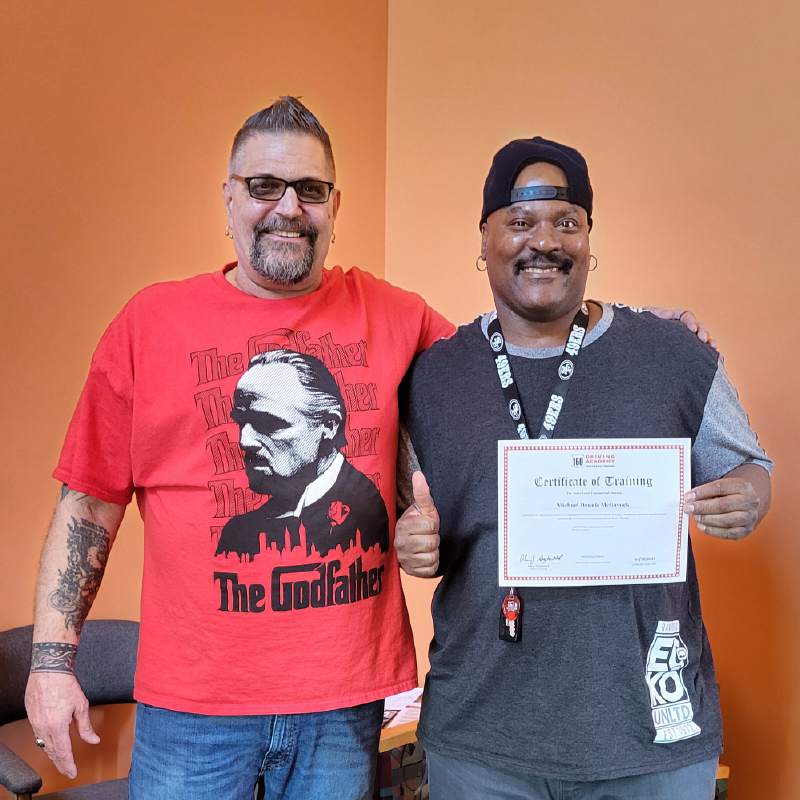
Les Doty’s journey took a transformative turn when his Department of Corrections release counselor recommended the Pathway Home program operated by Mental Health and Addiction Association of Oregon (MHAAO). Les knew others who had enrolled in the program, which assists eligible participants while they are incarcerated and after their release, and decided to check it out. It turned out to be an excellent fit.
MHAAO is a peer-run agency that offers free support to people grappling with mental health and substance use challenges. Dedicated peer counselors help participants get treatment, find housing and secure employment. Les’s MHAAO-assigned mentor and case manager encouraged him to pursue training as a peer support specialist, enabling him to pursue his passion for helping others and giving back to the community.
With MHAAO’s unwavering support, Les completed training as a peer wellness specialist and recovery mentor, enabling him to secure a recovery mentor certification from the Mental Health & Addiction Certification Board of Oregon and an adult addictions certification as a traditional health worker-peer support specialist from the Oregon Health Authority.
His MHAAO mentor also connected him with partner programs, including WorkSource and SE Works, which provide training opportunities, scholarships and job search support. SE Works provided Les with financial support and a laptop, while Pathway Home provided mentorship, housing assistance, a phone and transportation, ensuring Les had the necessary resources to thrive. Both supported him in refining his resume and wardrobe.
Today, Les enjoys full-time employment within the MHAAO Pathway Home program, working alongside his mentor for over a year. His job offers not only a competitive wage and comprehensive benefits, but an opportunity to make a positive impact in the lives of others facing similar challenges. As he explores management opportunities in peer support human services, Les cherishes quality time with his family.
Les’s story exemplifies the power of peer-centered support, where people like him find purpose, resilience and a chance to uplift others on their journey toward recovery and well-being.
“I love that I can share my lived experience with others and help them accomplish their employment goals,” he said. “Pathway Home changed my life.”
Michael McGavock learned about MHAAO from his peers while incarcerated, and a mailer persuaded him to look into the program.
Michael had initially been uncertain about life after incarceration, but the Pathway Home program helped him secure emergency housing, a crucial step toward stability. His mentor helped him secure funding for training, which enabled him to obtain a CDL Class A license and pursue a career as a truck driver. His peer support case manager helped him find work as a biohazard removal worker and secure short-term rental assistance while he pursued his CDL.
“I am so grateful for the Pathway Home program,” he said. “They helped me get a job to get my life back on track.”
Today, Michael works for Frsh LLC, an Amazon subcontractor, enjoying steady pay and comprehensive benefits. He enjoys his work, and loves spending time with his daughter and grandchildren. He hopes to someday own and operate an 18-wheeler and establish his own delivery business.
“Pathway Home saved my life out here, because I had no knowledge of the resources available to me, and the support I received was like no other because my mentor understood what it was like to rebuild their life.”

 U.S. Department of Labor Blog
U.S. Department of Labor Blog

